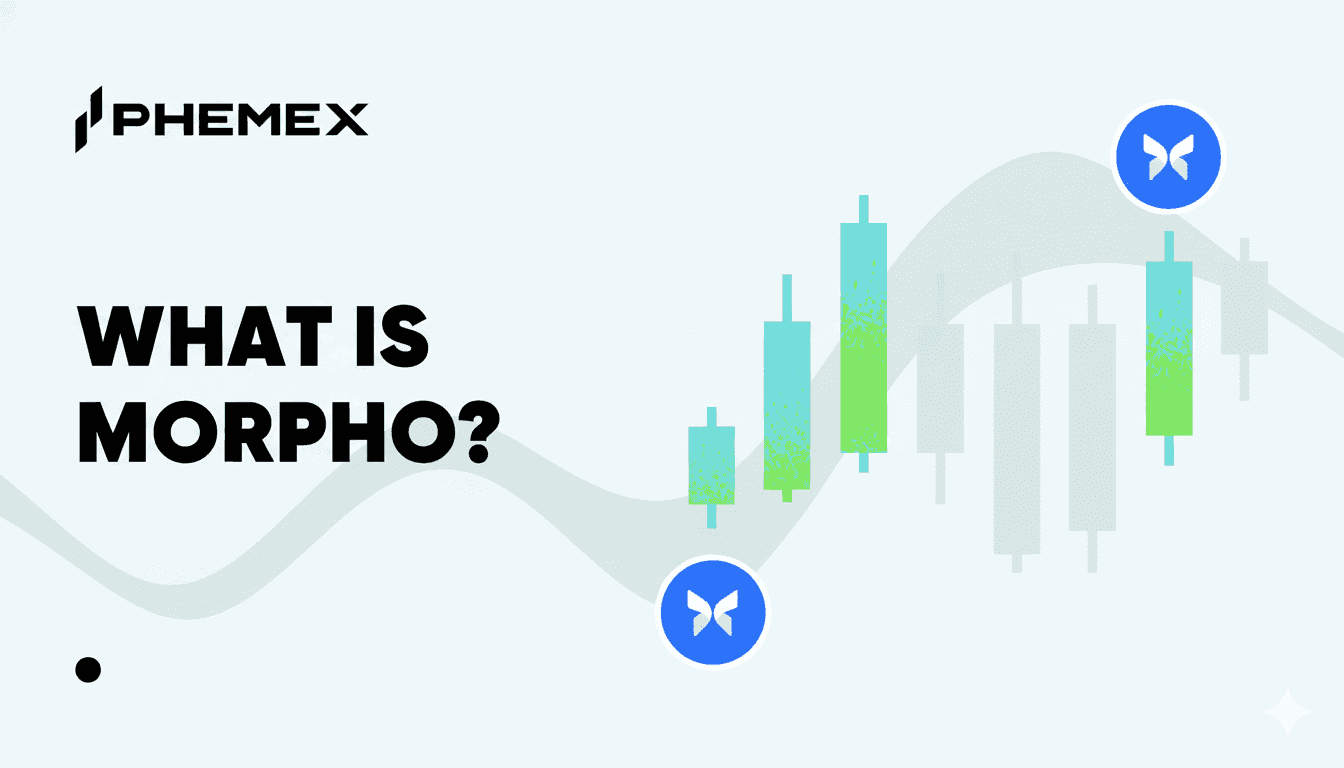What is a Liquidity Provider?
In the crypto market, a liquidity provider (LP) is instrumental in ensuring efficient trading, particularly in decentralized exchanges (DEXs). LPs allocate their crypto assets to "liquidity pools," crucial for the execution of trades on platforms like Uniswap, which differ from centralized exchanges (CEXs) such as Binance, Coinbase, and Kraken. In CEXs, transactions are mediated through a digital order book, whereas DEXs facilitate direct peer-to-peer trading via blockchain algorithms.
These liquidity pools in DEXs, composed of pooled crypto assets, facilitate various trading activities, including buying, selling, borrowing, lending, and token swapping. They enable asset conversion with minimal impact on the asset's market price. Participants in these pools receive Liquidity Provider Tokens (LP Tokens), symbolizing their pool share, widely recognized in the web3 and Decentralized Finance (DeFi) landscapes.
LP tokens are integral to overcoming liquidity hurdles in DEXs. When assets are contributed to a pool, smart contracts calculate the size of the contribution and its proportional reward. LPs maintain complete control over these tokens, with the flexibility to withdraw at will.
Ultimately, liquidity providers are the cornerstone of DEX operations, supplying cryptocurrencies for communal use and facilitating a decentralized trading environment. Their role is crucial in sustaining a vibrant and functional market within the dynamic sphere of decentralized finance.
What Does a Liquidity Provider Do?
In the world of cryptocurrency, a liquidity provider is fundamental in ensuring seamless trading operations. They create what's known as a liquidity pool, a collection of assets that allows participants in the crypto market to execute buy and sell orders with minimal price slippage. This slippage typically occurs due to insufficient market liquidity, leading to significant price changes, especially in large trades.
Liquidity providers are key players in maintaining the health of the cryptocurrency exchange. They achieve this by sustaining a consistent bid-ask spread, which is the differential between an asset's buying and selling prices. This responsibility helps to forge a stable and reliable trading environment. Within this ecosystem, market makers, a specialized type of liquidity provider, play a crucial role by regularly adjusting their buy and sell orders to ensure a stable supply of assets.
Furthermore, these providers may extend their services beyond just managing liquidity pools and market making. They often offer trading APIs, risk management solutions, and algorithmic trading strategies, thereby enhancing the overall efficiency of the crypto market.
As a reward for their contributions in resolving liquidity challenges, liquidity providers receive LP tokens from Decentralized Exchanges (DEXs) like Uniswap, SushiSwap, and PancakeSwap. These LP tokens, representing the holder's proportionate stake in the liquidity pool, can be utilized in various ways, including transferring or staking on other platforms. However, DEXs may implement strategies such as auto-compounding farms to encourage reinvestment of these rewards back into the liquidity pools.
In Decentralized Finance (DeFi), liquidity providers are pivotal, especially in DEXs operating on the Automated Market Maker (AMM) model. They deposit their crypto assets into pools, enabling the trading or swapping of tokens. Typically, these pools contain pairs of different digital assets, and providers are required to contribute equal values of each. For example, in an ETH-USDT pool, equal values of Ether (ETH) and USDT must be supplied.
Ultimately, liquidity providers are the backbone of efficient and stable operations in both cryptocurrency exchanges and DeFi platforms.
How Does a Liquidity Provider Work?
Liquidity providers are integral to the ecosystem of decentralized exchanges (DEXs), where they boost trading activities by adding assets to liquidity pools. For example, if you contribute $5 worth of Token A and Token B in a liquidity pool valued at $100, you secure a 5% ownership in the form of Liquidity Provider (LP) Tokens. These tokens, pivotal in the crypto market, symbolize your share in the pool and offer flexibility, as they can be transferred, traded, or even staked in various protocols.
The utility of LP tokens is influenced by slippage - a discrepancy in price occurring between the initiation and finalization of a transaction on the blockchain. This variation can arise from delayed blockchain confirmations or insufficient liquidity, leading to price inconsistencies in the pool. Furthermore, LP tokens can be utilized for staking, enabling providers to earn extra rewards, signifying a long-term commitment to the respective crypto token.
In the world of Initial DEX Offerings (IDOs), LP tokens are crucial as they are often exchanged for new tokens from emerging projects or startups. Yield farming is another avenue where crypto investors shift assets across different liquidity pools, aiming to maximize their returns. This could be in the form of transaction fees or governance tokens, akin to interest accrual in traditional banking.
Staking, a subset of yield farming, involves placing LP tokens in a staking pool to earn additional interest. However, it's important for liquidity providers in the crypto realm to be aware of the risk of impermanent loss, which occurs when the value of assets in a liquidity pool declines. Staking offers a way to offset this risk by providing potential returns that could counterbalance any losses from changes in the pool's asset value.
In essence, being a liquidity provider means actively contributing to liquidity pools, acquiring LP tokens as a representation of your stake, and having opportunities to enhance your earnings through staking or yield farming, all while navigating the inherent risks of the crypto market.
What Are Liquidity Provider Downside or Risks
Liquidity providers in the crypto market encounter several significant risks:
Security Risks
The primary risk for liquidity providers in decentralized exchanges (DEXs) is related to smart contract security. Assets deposited into DEX liquidity pools are controlled by these contracts, which lack a central overseeing authority. Vulnerabilities or bugs in smart contracts pose a risk of irrecoverable fund loss, as evidenced by incidents like the major hack on Uniswap in July 2022.
Governance Risks
Despite the decentralized nature of DEXs, they are often predominantly controlled by their developers. This can result in unilateral decision-making that could adversely affect liquidity providers. Attempts at decentralized governance, such as Uniswap’s UNI token, do not always fully shift control away from a select group, including developers.
Impermanent Loss
This occurs when the market value of assets in a liquidity pool diminishes, leading to potential losses. For example, a notable decrease in ETH’s price in an ETH/USDT pool might result in losses if assets are traded at these reduced prices. This type of loss is only actualized if the assets are withdrawn at their lower value.
Liquidity providers also face additional challenges:
- Market Risk: The inherently volatile nature of the cryptocurrency market means liquidity providers are constantly at risk of financial losses, particularly if they cannot swiftly respond to market shifts.
- Capital Requirements: To effectively operate within liquidity pools, substantial capital is often necessary, especially to mitigate losses in times of high market volatility.
- Regulatory Challenges: The regulatory environment for cryptocurrencies varies greatly across regions, presenting a complex and sometimes hazardous landscape for liquidity providers to traverse.
It’s essential for anyone considering becoming a liquidity provider in the fast-paced and unpredictable crypto trading environment to fully comprehend and prepare for these risks.
What Are Liquidity Provider Benefits
Liquidity providers in the crypto market offer substantial advantages that positively influence traders, investors, and the overall cryptocurrency market structure. Their essential roles include:
- Price Stability: Liquidity providers contribute to stabilizing crypto prices by narrowing the bid-ask spread. This action effectively reduces price slippage, thereby boosting confidence within the cryptocurrency market.
- Market Efficiency: They play a vital role in ensuring the steady availability of crypto assets for trading, which smoothens the trading process. This leads to quicker transaction executions and reduced wait times, enhancing the efficiency of the cryptocurrency market.
- Market Access: Liquidity providers facilitate market inclusivity by providing trading opportunities to a diverse group, from individual retail investors to large
- -scale institutional traders. This inclusivity fosters a more dynamic and robust crypto trading environment.
- Risk Mitigation: In the often volatile realm of cryptocurrency, liquidity providers are key in mitigating risks. They achieve this by supplying liquidity, which lessens the effects of sudden market fluctuations.
In addition to these benefits, liquidity providers earn revenue from fees or commissions on trades within liquidity pools of Decentralized Exchanges (DEXs). These fees, typically a small fraction of the transaction's value, are predominantly rewarded to the providers. By contributing assets to liquidity pools, they facilitate immediate and automated trading, offering more affordable trading options than traditional Centralized Exchanges (CEXs). Furthermore, the deeper liquidity found in DEXs minimizes slippage, making it a favorable option for traders handling large volumes. DEXs are constantly innovating, providing new avenues for liquidity providers to augment their earnings and diversify their income streams, often through creative use of LP tokens.
How to Choose a Liquidity Provider in 2023?
Choosing the appropriate liquidity provider in the crypto exchange market in 2023 is a pivotal decision for traders, investors, and exchanges. Essential factors to consider are:
- Pricing: Scrutinize the provider’s pricing model, including spreads, commissions, and any hidden fees, to confirm compatibility with your crypto trading approach.
- Regulation and Compliance: Prioritize a provider that complies with the regulatory standards of your jurisdiction, ensuring legality and minimized risk.
- Financial Strength: Investigate the provider's financial robustness, crucial for managing potential losses in the fluctuating crypto environment.
- Reputation: Conduct thorough research on the provider’s standing in the industry, customer feedback, and past performance to determine their dependability.
- Technology and Infrastructure: Evaluate the provider's technological prowess, particularly their speed in executing orders, route optimization, and overall system dependability.
- Customer Support: Opt for a provider known for their efficient and responsive customer support, an essential aspect for timely problem resolution.
- Diverse Asset Coverage: Look for a provider offering an extensive selection of crypto assets and tokens, broadening your investment opportunities.
- Transparency: Seek out a provider who values transparency in their operational processes and pricing models.
- Risk Management: Consider providers who offer effective risk management tools and strategies, essential in the unpredictable crypto market.
- Compatibility with Your Trading Strategy: The provider's services should align with your individual trading goals and strategies.
In essence, carefully selecting a liquidity provider who fulfills these criteria is fundamental to enhancing your engagement and success in the dynamic cryptocurrency trading landscape.
Read More
- What is a Liquidity Pool: Achieving Efficient Asset Trading
- What is Liquidity in Cryptocurrency& How does it Work?
- Liquidity: What is Liquidity in Crypto Markets?
- What Are LP Tokens? A Step-by-Step Guide to Creating Your Own LP Token & Launching a Coin
- What is a Liquidity Bootstrapping Pool (LBP): Protecting Investors from Whales and Bots
- How to Measure Liquidity and Use It to Make Trading Decisions?
- Yield Farming vs. Staking vs. Liquidity Mining: All You Need to Know
- What is an Automated Market Maker?







